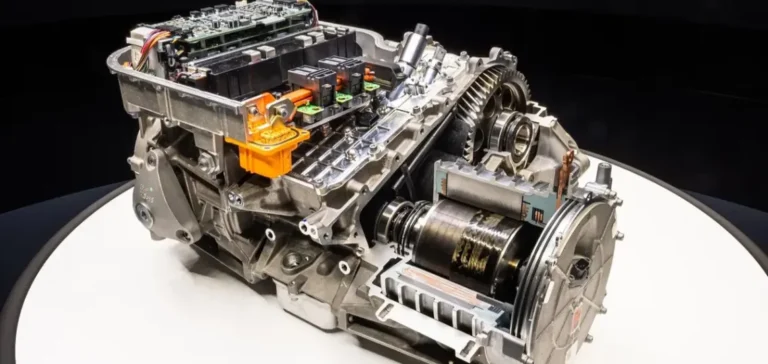Ferrari presented the technical structure of the Elettrica, its first fully electric vehicle, at its Maranello plant. This unveiling marks an industrial milestone for the manufacturer, which has opted to temper its energy transition targets. By 2030, the brand plans to offer a line-up composed equally of internal combustion and hybrid vehicles (40% each), with only 20% fully electric models, down from the previously targeted 40%.
In-house development focused on performance
The showcased chassis includes the high-voltage battery pack, electric motors and electronic axles, all developed in-house at the newly operational electric production facility known as the “e-building”. This setup allows Ferrari to maintain direct control over the strategic components of its upcoming models. The Elettrica, whose exterior design remains undisclosed, is expected to go on sale next year.
According to sources close to the project, no second electric model is scheduled before 2028. This decision reflects what is still considered insufficient demand for high-performance electric luxury vehicles, despite the growing interest in this technology within the automotive sector.
Maintaining industrial momentum
Ferrari has confirmed plans to launch an average of four new models per year between 2026 and 2030. This pace aims to sustain the interest of a loyal customer base while expanding it further. Since 2022, the number of active clients has increased by 20%, now reaching 90,000, according to data provided by the company.
Ferrari Chairman John Elkann stated that the Elettrica represents “the will to progress by uniting technological rigour, design creativity and industrial craftsmanship”.
Extending the customer experience
To support this shift, Ferrari plans to open two new “Tailor Made” centres in Tokyo and Los Angeles in 2027. These venues will allow buyers to personalise their vehicles according to specific preferences. Additionally, flagship stores will open in London and New York in 2026, as part of an expanded lifestyle offering that includes luxury products and exclusive services.
These developments aim to reinforce Ferrari’s global positioning by integrating high-end experiences into the brand’s automotive ecosystem.






















